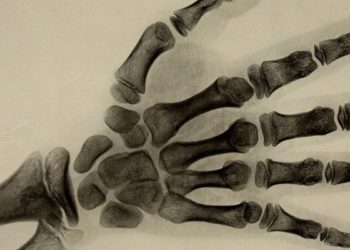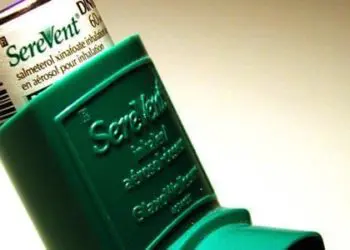Diagnosis of atopic dermatitis in children may be associated with lower educational attainment
1. Individuals diagnosed with atopic dermatitis (AD) as children were at elevated risk of not attaining lower and upper secondary education, compared to the general population, although this association was not present for university education.
2. No difference in educational attainment was found when children with AD were compared to full siblings without AD.
Evidence Rating Level: 2 (Good)
Study rundown: Atopic dermatitis (AD) is a condition exemplified by recurrent pruritic eczema, with a prevalence of 20% in the pediatric population of Western countries. It is thought that AD may lead to adverse effects on academic performance, due to itching disrupting concentration in school, lack of sleep, drowsy side effects from medication affecting focus in class, and psychosocial effects stemming from the stigma of having AD. Since level of education is correlated with health outcomes, it is valuable from a health perspective to investigate how an AD diagnosis may impact educational attainment. The current study based out of Denmark examined this association. Children diagnosed with AD before 13 years of age were matched to 10 controls without AD. Unlike previous studies on this topic, the children with AD were also compared to their full siblings without AD, controlling for factors such as genetics, socioeconomic status, and environmental factors that may confound the AD and educational level association. In both analyses, the primary outcome was educational attainment by the age of 30. Overall, the study found that children with AD were at greater risk of not attaining lower secondary and upper secondary education, but not for higher education. The analysis with siblings did not yield statistically significant differences. Overall, the study did show some small risk increases for children with AD and lower secondary or upper secondary attainment, although the clinical significance of these differences is unclear, and further investigations into other academic metrics (such as grades) may provide greater insight into this association.
Click here to read the study in JAMA Dermatology
Relevant Reading: Atopic dermatitis, educational attainment and psychological functioning: a national cohort study
In-Depth [retrospective cohort]: The participants in the study were taken from a national patient registry, where children with a hospital diagnosis of AD before 13 years old, and between 1977 and 2000, were included. This allowed for the youngest children to reach the age of 30 by the end of the study. These children were matched by age and sex to 10 controls from the general population, and also compared to their siblings without AD. The educational attainment was subdivided into 3 categories: Lower secondary (pre-school to Grade 9), upper secondary (2-3 years following lower secondary), and higher education (university). In total, there were 5,927 children with AD (56.4% male) and 55,226 controls (56.5% male). The sibling analysis consisted of 3,259 and 4,046 children with and without AD respectively. The results showed elevated risk in the AD cohort of not attaining lower secondary (relative risk 1.50, 95% CI 1.26-1.78) and upper secondary education (RR 1.16, 95% CI 1.09-1.24) compared to the matched controls, but with no elevated risk for higher education (RR 0.95, 95% CI 0.91-1.00). The absolute difference in probability between cohorts was smaller than 3.5% for each education level. In girls, and in children with a diagnosis before 5 years old, the risk was more pronounced for lower secondary education, but with an absolute difference of less than 1.2%. Additionally, the sibling analysis showed no difference when modified by age, sex, or socioeconomic status, and overall, no significant differences for each educational level (for lower secondary – RR 1.29, 95% CI 0.92-1.82; for upper secondary – RR 1.05, 95% CI 0.93-1.18; for higher education – RR 0.94, 95% CI 0.87-1.02).
Image: PD
©2021 2 Minute Medicine, Inc. All rights reserved. No works may be reproduced without expressed written consent from 2 Minute Medicine, Inc. Inquire about licensing here. No article should be construed as medical advice and is not intended as such by the authors or by 2 Minute Medicine, Inc.







